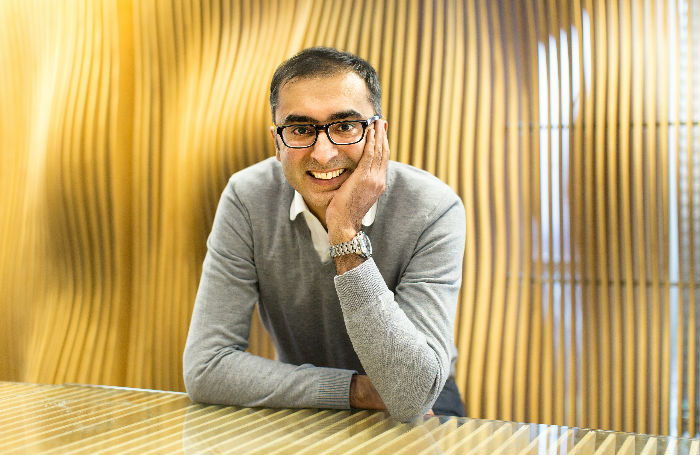Satwinder began his career with Urban Splash before moving to Proctor and Matthews Architects. He then co- founded Sauce Architecture. He is currently Director of Collaborative Practice at Sheffield University School of Architecture. Satwinder is also an onscreen Designer with The Dengineers on CBBC and a trustee of S1 Artspace.

I’ve worked with some great companies and I’ve taken the opportunities that have come my way. But none of this would have been possible if I hadn’t been able to access the right education in the first place. I want other people to have that chance too. Now I feel very fortunate as I work with brilliant students, educators and practitioners all of whom share a passion for this great subject.
Architecture is already a fairly exclusive profession and the financial realities of studying are making it even more so. It’s a long and arduous course and the introduction of the £9,000 annual fee means that year-on-year students are building up significant debt. We risk a future where an architectural profession will only be for those who can afford it.
Architecture is already a fairly exclusive profession and the financial realities of studying are making it even more so. We risk a future where an architectural profession will only be for those who can afford it.
If I were eighteen now, the chances of me becoming an architect would be close to zero. The financial barriers send out a signal: ‘this isn’t for you’. And that worries me. In that situation the prospect of taking on debt is likely to discourage people. I came from a working-class area that wasn’t particularly affluent but had a very diverse demographic. If you don’t have family members who have been through the university system then it can be a daunting prospect. Having said that, I was fortunate to have the support and encouragement of my parents, which was invaluable.
We need to send a message to talented, enthusiastic, driven students from less privileged backgrounds that the profession is open to them. I’m currently developing a scheme that allows students to earn as they learn. It’s called ‘Collaborative Practice’. Students will be employed by a practice during their Masters in Architecture programme, which means that their everyday practice work can count as live content for their academic studies. It’s all about integrating work and education so that students can progress towards full qualification in a shorter, more cost-effective and proactive way. The hope is that this approach lessens the risk of students leaving before they qualify.
I’m currently developing a scheme that allows students to earn as they learn. Students will be employed by a practice during their Masters in an Architecture programme, which means that their everyday practice work can count as live content for their academic studies.
If we want to have a profession that can deal with the challenges that society faces and has the capacity to work collaboratively with different demographics, then the profession needs to have a diverse population itself. When there are people around the table who have a range of life experiences and cultural backgrounds, then you have the potential for both a better process and a better project outcome. It’s about encouraging and capturing excellence, creativity and innovation.
Our students are very savvy. They are aware of new and emerging technologies, how we communicate and how this impacts on the design process. Good practices embrace this potential as they realise that it has value and benefit to them.
I have learnt most from those who adopt a can-do, non-egotistical, non-arrogant but purposeful approach. These are the kind of people who can take others with them and bring different voices together. I think it comes down to giving people the opportunity to have their say, demonstrating a willingness to ask questions and encouraging alternative points of view to be heard. When you create an environment where individuals have the confidence to contribute to the whole and think around the edges, they can do brilliant things.
When I think about how the profession needs to evolve in terms of increasing access or being better able to value and charge for what we do, I don’t think it’s just down to the ���������� to make those changes. All of us have a role and a responsibility to bring about progress, initiate change and act as ambassadors in all aspects of our work.



